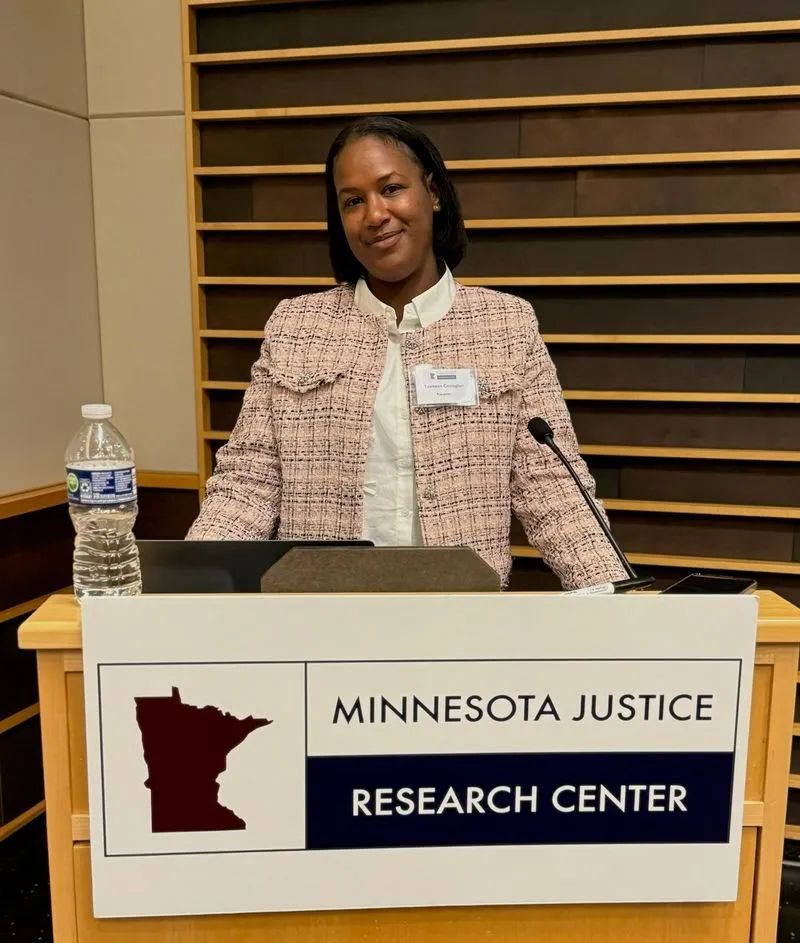In New York, the Supplemental Nutrition Assistance Program (SNAP) provides food assistance for residents who need help and offers a pathway to free job training and trade certificates, allowing recipients to return to school or join the workforce with a new skill.
Yasmeen was 26 years old and living in the Bronx when she applied for those benefits. She took advantage of the job-readiness program, earning certificates in security training and CPR. The New York Board of Education hired her as a school safety officer and sent her to work at a school in Yonkers.
“I was in my twenties and had this great job with benefits,” Yasmeen says. “I went to an elite fashion institute in Manhattan before that, but it wasn’t what I loved to do. I loved making money.”
But Yasmeen wouldn’t keep that job long. When she turned 27, she was a passenger in a car that was pulled over and searched under suspicion. The police found and confiscated illegal drugs, and Yasmeen, along with the driver, was charged with possession with intent to deliver.
Yasmeen says that since she had no criminal history, she was lucky to get a slap on the wrist. “I was given five years of probation, and I could never see that driver socially again,” says Yasmeen. “There is more to the story, but I accept responsibility for having the wrong people in my life.”
After this setback, Yasmeen was hired at a family homeless shelter in the Bronx as a food manager, providing three meals a day for 150 people. Still struggling financially, she applied for SNAP benefits for herself and her son and received them while she was on probation.
A year after her arrest, Yasmeen relocated to Charlotte, North Carolina, with her son, moving in with her parents to try and get a new start.
“I had no job when I moved to North Carolina, and my dad was the provider, so I wanted to apply for food assistance to help,” says Yasmeen. “I was denied two weeks later.”
Yasmeen appealed, knowing that she was eligible for SNAP for years in New York, and was told that she was denied because she had a prior felony drug conviction.
Only one state remaining, South Carolina, has a full ban on access to SNAP for individuals with a felony drug conviction, with about half of states enforcing a partial ban including North Carolina. States such as West Virginia, Michigan, and Oklahoma, and Mississippi have recently fully opted out of the ban.
North Carolina bans SNAP access for certain drug convictions, and has a waiting period of 6 months post release for access for others.
“The classes weren't on the bus line, and they are designed for people with drug problems,” says Yasmeen. “I’m not an addict, so why would I want to go to drug classes? There should be other options that are free.”
Not long after her move south, Yasmeen was referred to the Center for Employment Opportunities (CEO) in Charlotte. She started a job beautifying the local parks with a transitional work crew. Her job coach at CEO helped her apply for SNAP again, with no luck.
“I am thankful for CEO during that time because they were paying me for my work daily and gave me a cellphone and clothes,” says Yasmeen. “They just made it easier for me to live, and I felt supported.”
Her job coach helped Yasmeen apply for SNAP two more times with the same result, but the state gave no reason for the rejections except for the drug conviction a year earlier. After five months on the transition crew, CEO paid for Yasmeen to earn an OSHA certificate, and she started a new job as a traffic controller.
“When I started my new job, I decided to apply for benefits one more time, but this time, I asked for full benefits and not just food assistance,” Yasmeen said. “I met a caseworker at the Department of Social Services, and they offered my partial assistance because of my son, but when I asked about any educational opportunities through SNAP she turned cold. They didn’t want to help.”
SNAP participants in North Carolina received $2.94 billion in benefits in 2024. According to the USDA Food and Nutrition Service, North Carolina households with children receive an average of $495/month in food assistance – by denying Yasmeen SNAP full benefits, the state put her son in the “food insecure” category, denying staples like fruits and vegetables, milk, and bread that she struggled to afford.
“I go to the market twice a month and spend about four hundred dollars out of pocket for my son and me,” says Yasmeen. “The partial benefits help, but I don’t think I should be punished twice for my conviction…I already paid that debt.”
Visit our blog page to read more impactful stories, or donate to support economic mobility opportunities for justice-impacted individuals.




